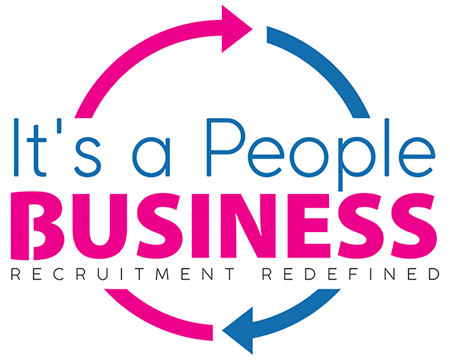
In today's competitive job market, it's not enough to rely solely on traditional methods of screening candidates, such as reviewing resumes and conducting interviews. As employers strive to find the best fit for their company, they are increasingly turning to alternative ways to screen candidates. These methods not only provide a more comprehensive view of a candidate's strengths and weaknesses but also ensure that the individual is a good cultural fit for the company.
Alternative screening methods can include everything from skills assessments and personality tests to background checks and social media evaluations. By incorporating these methods into the hiring process, employers can gain a better understanding of a candidate's work style, communication skills, and overall suitability for the role. Moreover, alternative screening methods help to eliminate unconscious bias during the hiring process, promoting diversity and inclusivity in the workplace.
While the traditional resume and interview approach still has its place, it's important for employers to explore alternative screening methods to ensure they are making the best hiring decisions for their company. In this blog post, we will discuss some of the alternative ways to screen candidates that can provide a more comprehensive understanding of a candidate's skills, personality, and cultural fit. Some of these methods include behavioural assessments, skills tests, job simulations, reference checks, and social media screening. By using a combination of these methods, employers can gain a more holistic view of the candidate and make a more informed hiring decision. Additionally, these alternative methods can also help reduce bias and increase diversity in the hiring process, as they focus more on objective criteria rather than relying solely on a candidate's resume. Overall, adopting alternative screening methods can lead to better hiring decisions and a more efficient and effective hiring process.
1. Behavioural interviews reveal character traits.
1. Behavioural interviews reveal character traits.

Enhancing the screening process for candidates is a vital aspect of building a thriving team. While resumes provide valuable information, they may not offer a comprehensive understanding of a candidate's capabilities and suitability. Behavioural interviews serve as a valuable alternative method for screening, unveiling character traits that are challenging to discern solely from a resume. By posing open-ended questions that explore how candidates have handled specific situations in the past, interviewers gain insights into their problem-solving abilities, communication skills, and decision-making processes.
Make more informed hiring decisions and build stronger teams.
Make more informed hiring decisions and build stronger teams.
This valuable information plays a pivotal role in assessing whether a candidate aligns with the organisation's values and can contribute to its overall success. Integrating behavioural interviews as an additional screening method empowers hiring managers to make more well-informed decisions, fostering the development of resilient and cohesive teams. By delving into candidates' behavioural patterns, organisations can build teams that exhibit exceptional qualities and enhance their potential for growth and achievement.
Read More: Mastering Talent Acquisition: Strategies and Best Practices for Recruiting Top Candidates
2. Skills assessments measure job readiness.
2. Skills assessments measure job readiness.
Enhancing candidate screening is a pivotal component of effective recruitment processes. While resumes offer insights into an applicant's background and education, they may not fully capture their readiness for a specific role. This is where skills assessments play a vital role. By utilising various assessments, recruiters can comprehensively evaluate a candidate's job readiness, encompassing their skills, abilities, and suitability for the position. Skills assessments come in diverse forms, such as cognitive tests, behavioural evaluations, or technical examinations, and can be tailored to align with the specific requirements of the role.
Optimise your talent acquisition process.
Optimise your talent acquisition process.
By integrating skills assessments alongside traditional resume screening, recruiters gain a more accurate understanding of each candidate's qualifications, enabling them to make informed hiring decisions. These assessments provide a holistic perspective, allowing recruiters to identify the most qualified individuals for the position at hand. By employing skills assessments, organisations can optimise their talent acquisition process, ensuring a better match between candidates and job roles, ultimately leading to more successful hires.
Read More: The Future of Work: Predictions for Online Recruitment in the Next Decade
3. Reference checks verify past performance.
3. Reference checks verify past performance.

Enhancing candidate screening encompasses more than just reviewing resumes. A significant aspect of the hiring process involves conducting reference checks to validate past performance. Reference checks involve contacting the candidate's previous employers, colleagues, or professional contacts to gather essential information about their work ethic, skills, and overall achievements. By engaging in this process, valuable insights can be obtained regarding the candidate's suitability for the position and their compatibility with the company culture.
Ask open-ended questions and listen carefully to the responses.
It is crucial to pose open-ended questions during reference checks and attentively listen to the responses, as this aids in assessing the candidate's strengths and areas for development. Although reference checks may require time and effort, they serve as a vital step in the hiring process that ultimately contributes to the formation of a more successful and productive team. By conducting thorough reference checks, organisations can make more informed decisions and increase the likelihood of selecting candidates who will thrive within their work environment.
4. Video interviews reduce scheduling conflicts.
4. Video interviews reduce scheduling conflicts.

Improving candidate screening is a crucial aspect of any hiring process, and video interviews present a valuable solution. One of the key benefits of using video interviews is that they significantly reduce scheduling conflicts. Traditional in-person interviews often require coordinating multiple schedules, which can be a time-consuming and frustrating process for both the hiring team and the candidates. With video interviews, however, candidates can record their responses at a time that is convenient for them, without the need for scheduling and coordinating with multiple parties.
Make informed decisions quickly and efficiently.
Make informed decisions quickly and efficiently.
Read More: Mastering the Main Stages of Any Recruitment Discussion: A Practical Guide for Employers
This not only saves time and resources but also allows hiring teams to screen a larger pool of candidates effectively. Additionally, video interviews provide the flexibility to review and evaluate candidates at any time, enabling hiring managers to make informed decisions quickly and efficiently. By incorporating video interviews into the screening process, hiring teams can streamline their workflow, reduce scheduling conflicts, and ultimately make better hiring decisions.
5. Work samples demonstrate practical skills.
5. Work samples demonstrate practical skills.
Improving candidate screening is a crucial aspect of hiring the right talent for your organisation. While resumes remain a primary tool for evaluating a candidate's qualifications, there are alternative ways to screen candidates that can be equally effective. One such method is to request work samples from candidates.
Read More: The Benefits of Working with a Flat Fee Recruiter
Work samples offer a glimpse into a candidate's practical skills and provide insight into their work style, attention to detail, and problem-solving abilities. By reviewing work samples, recruiters and hiring managers can assess a candidate's competence, creativity, and potential fit for the role. Additionally, work samples can give candidates an opportunity to showcase their work and demonstrate their ability to contribute to the organisation. Overall, incorporating work samples into your candidate screening process can enhance your ability to identify top talent and make more informed hiring decisions.
Conclusion
Conclusion
While resumes continue to be an important tool for assessing a candidate's qualifications, there are many alternative ways to screen candidates that can help companies identify the right fit for the job. From skills assessments to work samples and behavioural interviews, these methods provide a more comprehensive picture of the candidate's abilities and work style. By incorporating these alternative screening methods into their hiring process, companies can increase the chances of finding the right person for the job and create a more diverse and inclusive workplace.
Reach out to It's a People.Business for expert guidance and support in implementing these best practices. Our team of recruitment professionals can help you develop a cost-effective and efficient hiring strategy that aligns with your business goals. Contact us today to learn more and take the first step towards building a strong and talented team for your small business.
